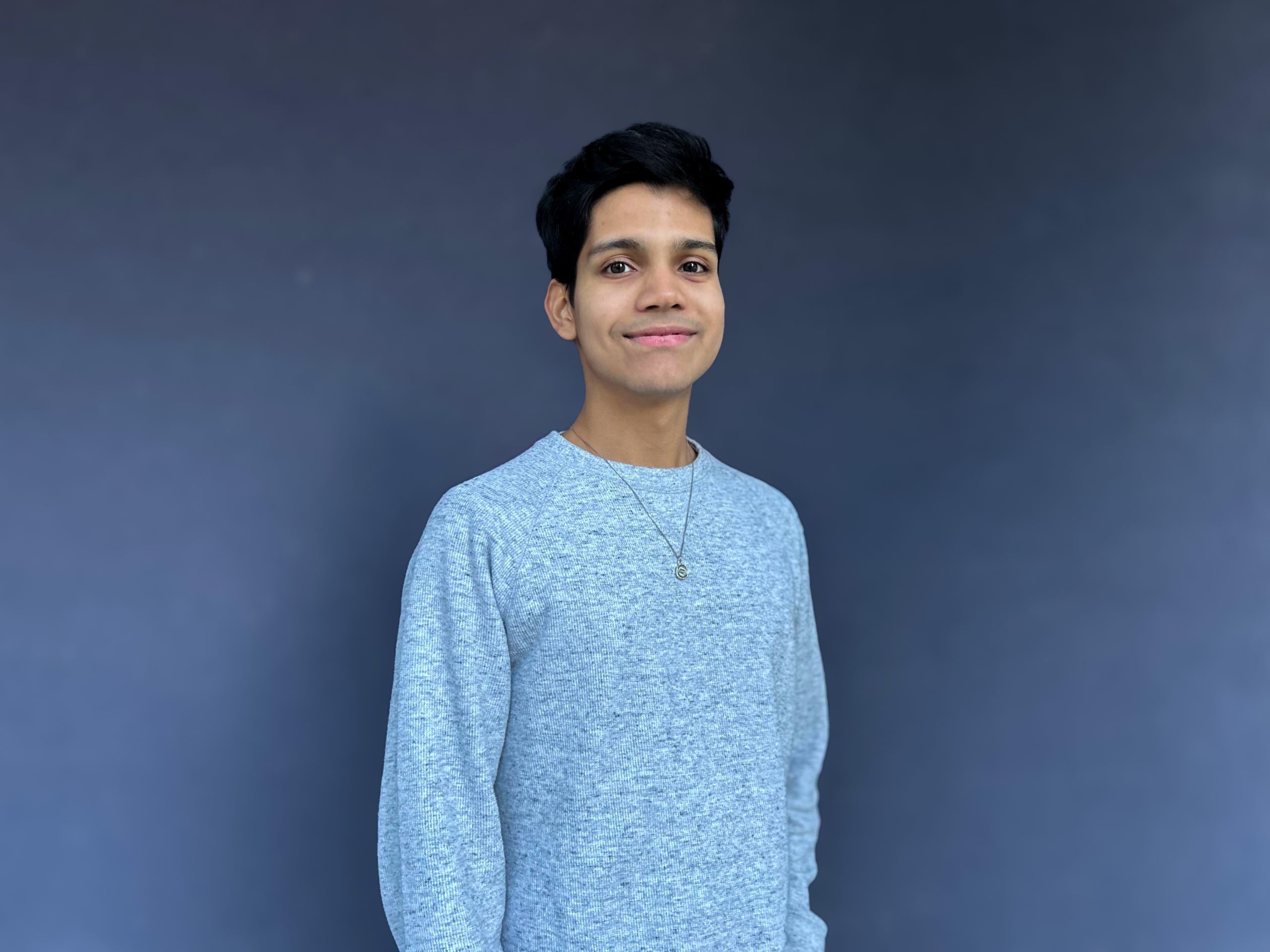Husein Haveliwala, a 2nd year Master of Journalism student, recently completed two internships.
In this Q&A, Husein shares the challenges of working on two very different projects, the popular podcast Don’t Call Me Resilient from The Conversation Canada, and the TV show The Amazing Race Canada. He says the internships produced some of the most fulfilling moments of his career to date.


Husein Haveliwala, 2nd year Master of Journalism student. Photo credit: Bismah Mughal.
Can you tell us a bit more about the internships?
The first internship was with The Conversation Canada where I worked with the production team of the podcast Don’t Call Me Resilient, that dives into conversations with academics and experts to make sense of the news from a critical race perspective. The second internship was with Insight Productions where I worked as a production assistant on the Vancouver leg of the tenth season of The Amazing Race Canada, a reality competition television show. I assisted with transportation, craft services, and testing a challenge. The internship at The Conversation Canada was for six weeks, and the one at Insight Productions was for one week.
“It was deeply fulfilling to work on stories that had social impact.”
What was the process behind getting these internships?
Professor Kathryn Gretsinger informed me about the internship at The Conversation Canada, as we had discussed my podcasting experience during our one-on-one internship consulting sessions. Kathryn also helped in putting together my application package by giving me feedback on my cover letter and the format of my resumé.
I came across a press release that announced the tenth season of The Amazing Race Canada, and how it was going into production. After a lot of cold emails, I landed a meeting with Mark Lysakowski, Executive Producer and Showrunner of The Amazing Race Canada and Senior Vice President at Insight Productions. Kathryn was present at the meeting, and supported me throughout the process. Mark was kind enough to offer me the opportunity to be a production assistant when the show was to film in Vancouver.
Did you enjoy the internship experience? What did you learn?
I had a great internship experience at Don’t Call Me Resilient. I learned so much from the team – including host Vinita Srivastava, associate producers Ateqah Khaki and Dannielle Piper, and consulting producer Jennifer Moroz – all incredibly generous with their guidance, feedback and mentorship. It was deeply fulfilling to work on stories that had social impact. I also learned a lot about production protocols such as q-line construction and meticulous research.
It was a whirlwind of a week working on The Amazing Race Canada. This was my first time as a production assistant, and while it was a very minor part of a huge project, I was grateful to be able to get a glimpse into the world of reality television production. It was impressive to see the seamless coordination between various teams, and the sheer amount of preparation involved during the pre-production phase.
It really does take a village! I assisted with logistics, craft services, and transportation, and also got the exciting opportunity to test out a challenge that involved frantically running around Granville Island, asking strangers for directions, hopping onto a ferry, and getting into a taxi with a sweet old woman; all with $50 and no mobile phone.
How did the Master of Journalism program help you succeed?
The foundational journalistic values and skills I learnt during the first year of the program came to good use during my internships. Prior to the program, the journalistic process of ‘chasing’ was extremely daunting to me. Then, as part of the Integrated Journalism course (JRNL 515C), we worked on multiple stories that involved finding sources and scheduling interviews. I gained some valuable experience during the program, and was able to hone my chase production skills while working on this podcast.
“I gained some valuable experience during the program, and was able to hone my chase production skills while working on this podcast.”
In my first week at The Conversation Canada, I was assigned to work on an episode about how starvation is being used as a weapon of war in Gaza. We were on a time crunch since the episode had to go live the following week, and the first step after preliminary research, naturally, was chasing.
After hours of research and countless emails back and forth, I was able to book the former United Nations Special Rapporteur on the Right to Food, Hilal Elver, for the episode. Vinita and Hilal went on to have an immensely impactful conversation, and I’m really proud of the episode we produced.


